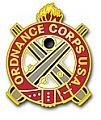Ken,
The early signs certainly are not propitious. Casey seems to be articulating a view of a post-Iraq organizational ‘reboot’ (can’t remember who first used this term but essentially ‘back to the way we were’) for the Army (and for the purpose of equity, Conway’s recent public articulation of ‘we are too heavy’, need to get back to amphibious warfare, etc, also suggests the same). A hope is that the Army may take at least some heed of Gates articulation that ‘small wars’ were going to be a perennial mission over the next 20 or so years (but Gates is time limited, so he can be waited out, to see what are the views of the next Sec Def and President – a clear reason for trying to convince the Pres candidates).a top down approach within the Army, my guess is that will not happen. I could be wrong, certainly have been before and I really, really hope I am.
All too true. Institutional inertia and friction are too often the death of institutionalizing innovation, resulting in only partial implementation, the complete derailment of innovation or the petering out of the implementation process over time with the organization eventually returning to its default position.However, a combination of "Nothing wrong, the system worked for me," plain old inertia, the massive bureaucracy and Congress will make such an approach problematical at best. It will also, if it occurs, be spotty in its effect because various nooks and crannies will go into pet rock protective mode and the cascade of directives will miss some who will emerge stronger than ever and plunk for a return to 'normalcy.'
Your observation is spot on. Any bottom up ‘insurgency’ to have any chance of succeeding will require some degree of top down cover and support from some ‘visionary’ officers, both at the GO and Col level, and the Lts and Cpts you point to will need to have a long term view that sooner or later they may, when higher up the hierarchy, be able to exert greater influence. A mid range hope is if supportive Cols and Lt Cols are promoted up to GO: though I acknowledge that the career path needed to become a GO tends to mitigate against many of the supportive officers being promoted to GO, or their remaining supportive due to 'socialization.' And this points to the need for appropriate career paths/opportunities being created for those officers at all level who support change. All very long term, likely very episodic, and very, very uncertain.I agree that the potential for a bottom up approach at this time is as good as its likely to get. That would have the advantage of a "back wash" effect on those nooks and crannies. If the LTs and CPTs push hard, it could happen. The junior field grades are likely to be passive for the most part but the Colonels will probably flock to the barricades. No insult to anyone intended; all will be going with their perception of what's right and best but the system is designed to be change resistant and the Colonels are the gate keepers.
Again, you are quite right with this point. One of the reasons why, as you say, ‘the potential for a bottom up approach at this time is as good as its likely to get’, is that it is possible to link the srotsf of changes desired/required to what they have experienced and they can perceive the potential benefits. As for Congress, well, it is the Congress…..Nobody wants to go to untried models that may be detrimental rather than improvements and surprisingly large numbers fail to realize the impact of Congress on the personnel and training systems...




 -- that doesn't mean NCOES couldn't stand a whole lot of tweaking and strengthening. We almost deliberately tend to create under performers.
-- that doesn't mean NCOES couldn't stand a whole lot of tweaking and strengthening. We almost deliberately tend to create under performers.





 "A Sherman can give you a very nice... edge."- Oddball,
"A Sherman can give you a very nice... edge."- Oddball, 


 ).
).
Bookmarks